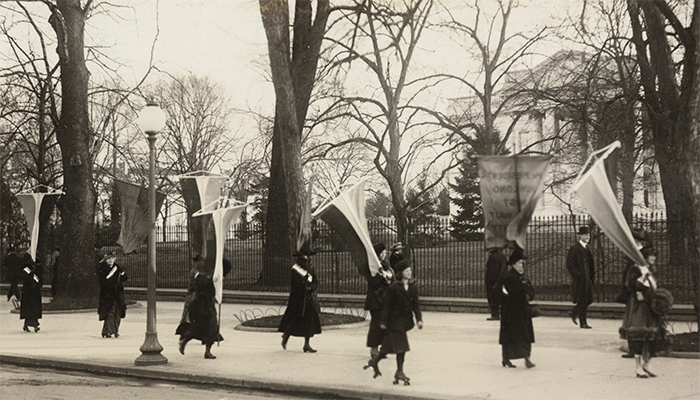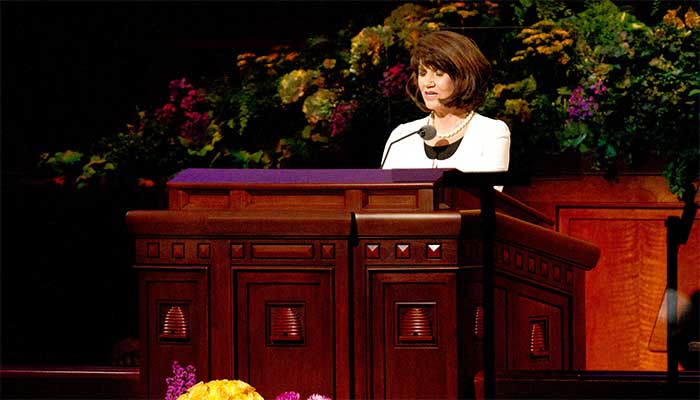All Mormons are Feminists. Even You
For several years, the topic of feminism in The Church of Jesus Christ of Latter-day Saints has generated much interest among members and outsiders alike.
Thoughts on the topic tend to gather around two ideas:
1) Mormonism is a big enough “tent” to accommodate those with feminist ideas
2) The requirements of Mormonism are too strict to allow anyone to be both feminist and fully Mormon
I intend to suggest a third alternative: The doctrines and practices of the Church require all its members to be Mormon feminists.
What is a Feminist?

To understand how all Mormons should be feminist, we must first peel off the cultural baggage of feminism. Mormons can’t subscribe to everything every feminist says because many feminists disagree with each other.
Feminism’s core, in fact, is quite simple:
[quote_center]The belief that men and women should have equal rights and opportunities
—Meriam Webster [/quote_center]
Many Latter-day Saints reading that definition will readily see themselves described in it. But the feminism they understand from popular culture feels much more radical and foreign than that simple definition.
Of course, the feminism we click articles about on Facebook seems radical. I don’t imagine the headline “Large majorities of feminists act reasonably” would generate many page views. The feminists that generate the most interest are the fringe elements and Beyoncé.
There are some beliefs that a majority of feminists hold today, like anti-life abortionism, that almost all Latter-day Saints do not. But these beliefs are not requirements to be a feminist, as the forty-three-year-old organization “Feminists for Life” demonstrates.
Feminism is a much more diverse body of philosophies and approaches than you might imagine. The only common theme, in fact, is the belief that men and women are equal. And while there are many people around the world who don’t believe that, Latter-day Saints not only believe it in large number but are required to do so by doctrine.
The Radical Proclamation

Among Mormon feminists, there is a strain of thought that “The Family: A Proclamation to the World” was a step back for feminists in the Church. Nothing could be further from the truth.
The Proclamation proclaims that mothers and fathers are equal partners. This statement was a more clear-cut statement on equality specific to gender than had existed in all of scripture. While some may point out conventions of different protestant denominations that have made similar statements, these statements have nowhere near the binding effect on their church’s members as a unified statement from every living prophet and apostle has on the members of our faith.
Still, some Mormon feminists take issue with the proclamation because of issues of intersectionality. Some contemporary feminists view their feminism through the ways it intersects with other issues such as sexuality or transgenderism.
Even though some feminists care about these additional issues, it is important that they not be conflated with feminism itself.
The Proclamation on the Family, of course, was not the first bold doctrine on equality unique to Latter-day Saints. Nephi wrote, “And he denieth none that come unto him, black and white, bond and free, male and female . . . and all are alike unto God.”
And of course, we have other unique Mormon feminist doctrines, including Eve’s heroism in partaking of the fruit and the reality of our Mother in Heaven.
It is little surprise that with this doctrinal emphasis Latter-day Saints have a long history of participating in feminist causes.
Doctrine v. Practice

Still, there will be some that claim that what matters is not so much what members of the Church believe but what members of the Church do.
But Latter-day Saints have done some pretty incredible things. Mormon feminists pushed Utah to be the first in the nation to allow women to vote. And Eliza R. Snow, the second president of the Relief Society, traveled around the state advocating for feminist causes.
And while there has been criticism of the Church’s stance on later causes such as the Equal Rights Amendment, even some feminists don’t believe that particular bill should be passed.
Today, Mormon women are actually living out their equality. In politics, Paula Hawkins was the first woman elected to the US Senate without a family connection, ever. Just recently Mia Love became the first Black Republican woman to be elected to Congress. In other areas, Valerie Adams is a two time gold medalist, Shannon Hale is publishing best selling novels and winning Newberry honors. Alison Davis-Blake leads the University of Michigan Business School.
I could go on. Mormon women are doing great and important things in their communities because they understand their worth and equality from their religious foundation.
There are still issues that many feminists would have with the practices of the Church. But that hardly means its members can’t be feminist. One group of feminists called “cultural feminists” would praise many of the same church practices more mainline feminists would take issue with.
As Mormon feminist voices have risen recently, the Church has continued to make institutional changes toward the complete equality of women. Clearly then, members of the Church cannot only have the beliefs of feminists but advocate in many ways for feminist causes.
Reclaim Feminism
Feminism is at a crucial cultural moment. Many commentators see the goals and purposes of feminism going through a new phase of definition. Since Latter-day Saints believe so emphatically in the primary purpose of feminism, it seems silly that so many would purposely keep themselves out of the conversation of what feminism will look like in the coming decades.
 Some major political initiatives of feminists will fit with Latter-day Saints who wish to defend the family such as movements to fight sex trafficking or to provide better family leave policies at work.
Some major political initiatives of feminists will fit with Latter-day Saints who wish to defend the family such as movements to fight sex trafficking or to provide better family leave policies at work.
Feminism is too important to Latter-day Saints to allow it to be defined only by the most radical people who share that belief. Rather than demonizing and fleeing feminism, Latter-day Saints would do well to join their voice with other feminists and work toward those goals we share.


